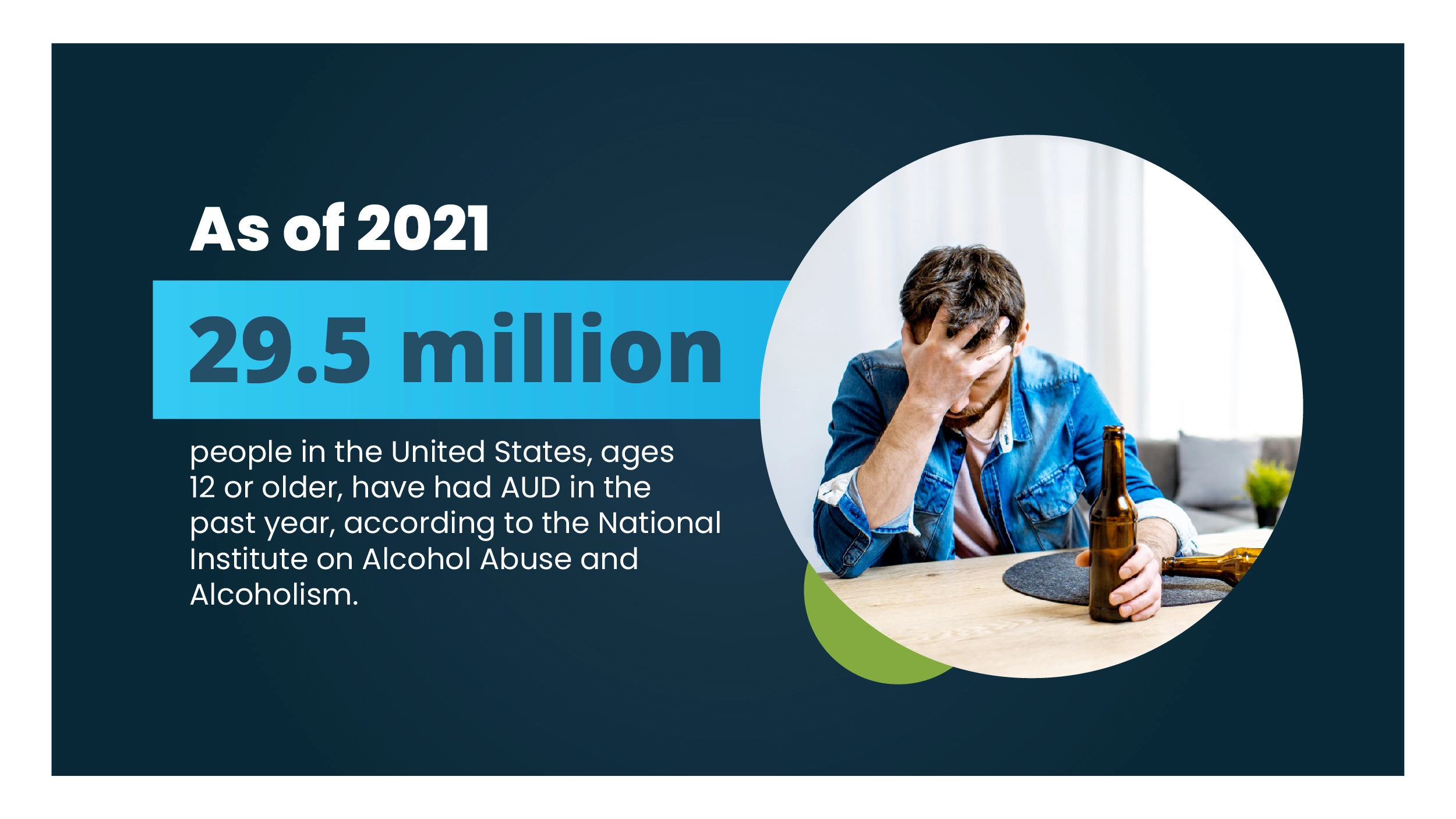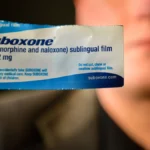Dangerous Effects of Chronic Alcohol Use
From beer at sporting events to wine at dinner, alcohol is a common social drug used in the United States. Like any drug, alcohol use can result in damage to the body and mental health. These long-term consequences can include digestive problems, heart disease, severe strokes, and even cancer. Long-term use of alcohol can also result in a substance use disorder, more specifically, alcohol use disorder. This is a mental condition that can impact a person’s ability to stop or control their consumption of alcohol despite the health, social, or occupational consequences they are facing. As of 2021, 29.5 million people in the United States, ages 12 or older, have had AUD in the past year, according to the National Institute on Alcohol Abuse and Alcoholism.

How Chronic Alcohol Use Effects Your Long-Term Health
While consuming alcohol occasionally isn’t dangerous, long-term excessive drinking can result in various health issues if not addressed. Some effects of alcohol are immediate and can last a few hours, such as alcohol poisoning or a hangover, but others can have long-term, sometimes irreversible consequences.
Chronic alcohol use over time can impact essential parts of the body, like the liver, brain, and heart. It is important to be informed about the dangerous impacts of alcohol on your health so that your condition can be addressed and treated as soon as possible. If you or a loved one is struggling with alcohol dependence or addiction, consult with a health professional right away.
Liver
The liver is responsible for filtering toxins from the blood, metabolizing nutrients, and aiding in digestion. Over time, chronic alcohol use can result in three different types of liver diseases that are detrimental to one’s overall health.
- Fatty liver: Characterized by an accumulation of fat in liver cells and can progress into more severe conditions as the alcohol abuse continues.
- Alcoholic hepatitis: An inflammatory condition that can cause the liver to swell and potentially be life-threatening. Individuals may experience fatigue, pain in the abdomen, or a loss of appetite.
- Cirrhosis: Occurs in later stages where the liver tissue is replaced by scar tissue, greatly impacting the liver’s ability to function. This condition is irreversible and can lead to fluid retention and an increased risk of liver cancer.
Brain
Excessive alcohol use can significantly impact the function of the brain and lead to a range of neurological and cognitive impairments. These individuals may experience difficulties with their memory, attention, and problem-solving abilities, and over time, it may be challenging to perform tasks requiring concentration.
The cerebral cortex and limbic system’s reduction in size is another result of long-term alcohol use, causing issues with an individual’s ability to make decisions and regulate their emotions. An increased risk of mental health disorders like depression and addiction can also be caused by chronic alcohol use.
Cardiovascular System
The cardiovascular system is another important part of the body that is severely affected by chronic alcohol use. There are a few different cardiovascular conditions excessive use of the drug can cause.
- High blood pressure: Elevated blood pressure levels can increase the risk of developing hypertension. A consistent high blood pressure can strain the heart and blood vessels which is what can lead to heart disease or a stroke.
- Cardiomyopathy: This condition is caused by weakened heart muscles as a result of chronic drinking, impairing the heart’s ability to pump blood through the body effectively. Symptoms of this may include fatigue and shortness of breath.
- Weakened immune system: As excessive alcohol consumption can comprise the immune system, this can increase the risk of infections, including those affecting the cardiovascular system, such as endocarditis.
Digestive System
Long-term alcohol use can have significant impacts on the entire digestive system, which can lead to a variety of gastrointestinal issues. These can impair the body’s ability to absorb essential nutrients. A few key ways chronic alcohol use affects the digestive system include conditions like inflation of the stomach lining, increased risk of ulcers, pancreatitis, and impaired nutrient absorption.
Understanding Alcoholism
Alcohol consumption can be broken up into a few different levels. Moderate alcohol use is considered no more than two drinks a day for men and one for women. Alcohol abuse is a more dangerous level of drinking where their consumption begins to interfere with responsibilities like work, school, or family and may cause legal problems like DUI’s.
Alcohol use, also known as alcoholism, is a medical condition where the individual has an impaired ability to stop or control their alcohol use. Alcohol misuse, like binge drinking and heavy alcohol use, is a major factor that contributes to alcoholism. Factors like genetics and mental health conditions can also play a role in developing AUD.
It is important to seek help for alcoholism from a medical professional as soon as possible so that the condition can be addressed and treated before it progresses.
Alcohol use disorder can range from mild to severe based on the amount of symptoms the individual is experiencing.
Below are a few common symptoms of AUD:
- Continuing to drink despite the consequences
- Strong cravings for alcohol
- Failing to fulfill obligations at home, work, or school
- Drinking in hazardous situations
- Repeated unsuccessful attempts to quit drinking
- Experiencing withdrawal symptoms like insomnia or nausea during periods without alcohol.
If you or a loved one is experiencing one or more of these symptoms, seek help from a professional.
Treatment for Alcohol Use Disorder
Treatment for alcohol use disorder involves a combination of therapy, medication, and medical care from a team of professionals. This comprehensive approach is necessary in addressing the complex interplay between the variety of factors that contribute to the condition. There are a variety of evidence-based treatments available to meet the individual needs of different patients. Patients can undergo treatment at a residential level of care with around-the-clock support or enter an outpatient program if they require more flexibility for home or work obligations.
Detox
Alcohol detoxification, or detox, is the initial phase of treatment where the body eliminates alcohol and adjusts to functioning without it. Medical supervision is crucial during withdrawal from alcohol as it can cause uncomfortable symptoms like anxiety, nausea, and sweating.
Healthcare providers can administer medications such as benzodiazepines that help manage these withdrawal symptoms and reduce severe medical complications such as seizures. The goal of detox is to stabilize the individual’s physiological state, which can pave the way for a more focused treatment and sustainable recovery. Once a patient completes detox, they can begin treatment.
Behavioral Therapy
Behavioral therapies are designed to help patients develop healthy coping strategies, identify triggers, and adjust their attitudes and behavior toward alcohol. One of the most common types of therapy used in alcohol use disorder treatment is Cognitive Behavioral Therapy (CBT). This evidence-based therapy helps individuals learn to recognize and avoid triggers that lead to drinking. Group therapy is also offered to provide a supportive environment where individuals struggling can come together and share their experiences.
Medication
There are several medications that have been approved by the U.S. Food and Drug Administration (FDA) for treating alcoholism. These medications can help patients reduce their cravings and lessen the severity of withdrawal, allowing them to focus more on recovery.
Below are a few common types of medication used in the treatment of alcohol use disorder:
- Naltrexone: Naltrexone is an opioid antagonist that works by blocking the euphoric effects of alcohol and reducing cravings.
- Acamprosate: Acamprosate helps patients maintain abstinence by reducing uncomfortable withdrawal symptoms like anxiety, insomnia, and dysphoria.
- Disulfiram: Disulfiram produces unpleasant physical reactions like nausea, flushing, and palpitations when the individual drinks.
Frequently Asked Questions (FAQ)
What are 4 long-term effects that alcohol has on the human body?
Drinking excessively over time can result in the development of chronic diseases and other severe conditions, including high blood pressure, heart disease, stroke, liver disease, and digestive problems.
What are the side effects of alcohol on your health?
Chronic alcohol use can cause a variety of problems to different parts of your party, like the brain, heart, and liver. High blood pressure, heart disease, stroke, and liver disease are common side effects associated with alcohol. Drinking can also increase the risk of cancer of the breast, mouth, throat, esophagus, voice box, liver, colon, and rectum.
Find Help at The Haven Detox-Little Rock
Long-term alcohol use can significantly impact a person’s body, mind, and relationships. It can result in lasting damage to important organs in the body, increasing the risk of severe health problems such as liver and heart disease. With the right treatment and support from dedicated medical staff, recovery is possible.
The Haven Detox has helped thousands of patients overcome their alcoholism and reach a healthier way of living. With a focus on holistic healing and personalized therapy, our facility provides a safe and nurturing environment for individuals to embark on their journey to recovery. Patients in our residential treatment program will have access to our comfortable dorms, around-the-clock medical support, holistic therapies, and many amenities.
Contact us at (501) 271-3342 to speak with one of our friendly counselors. We are available 24/7 to answer your questions.




